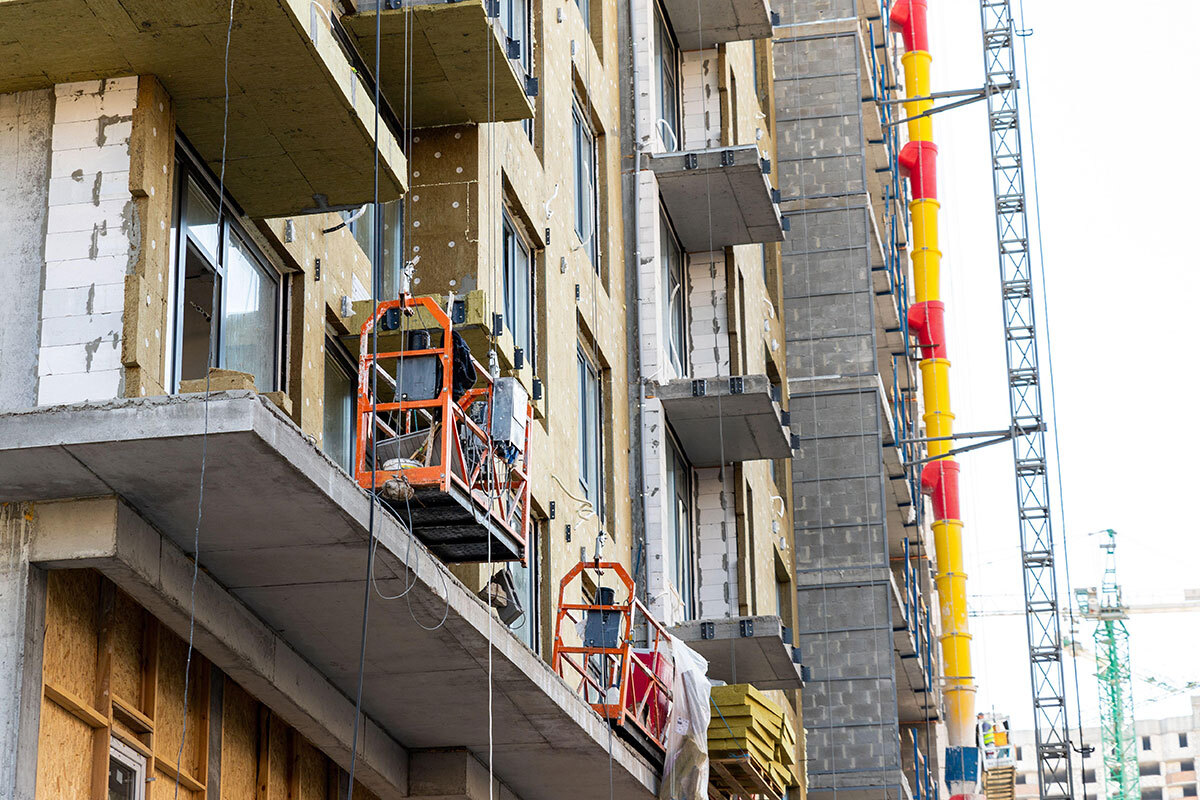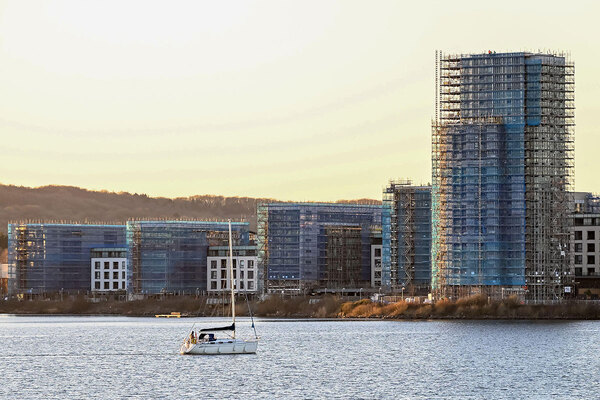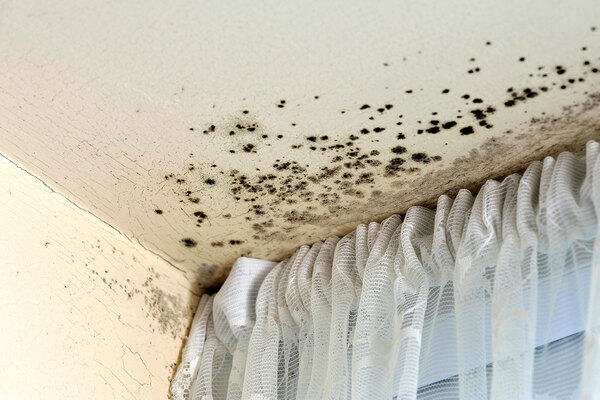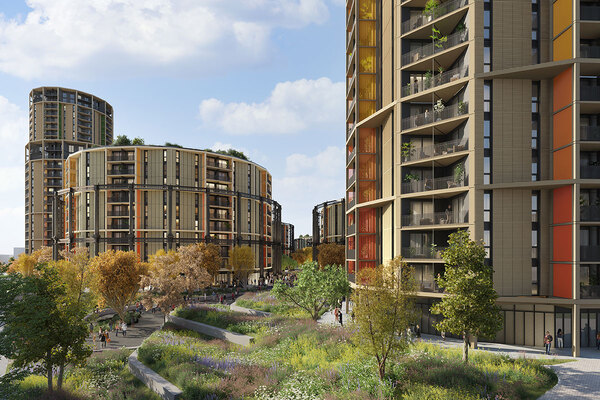Five things we learned from Scotland’s Housing (Cladding Remediation) Bill
The Scottish government has published a bill that gives it new powers to assess and remediate buildings with dangerous cladding. James Riding unpicks the key parts of the legislation
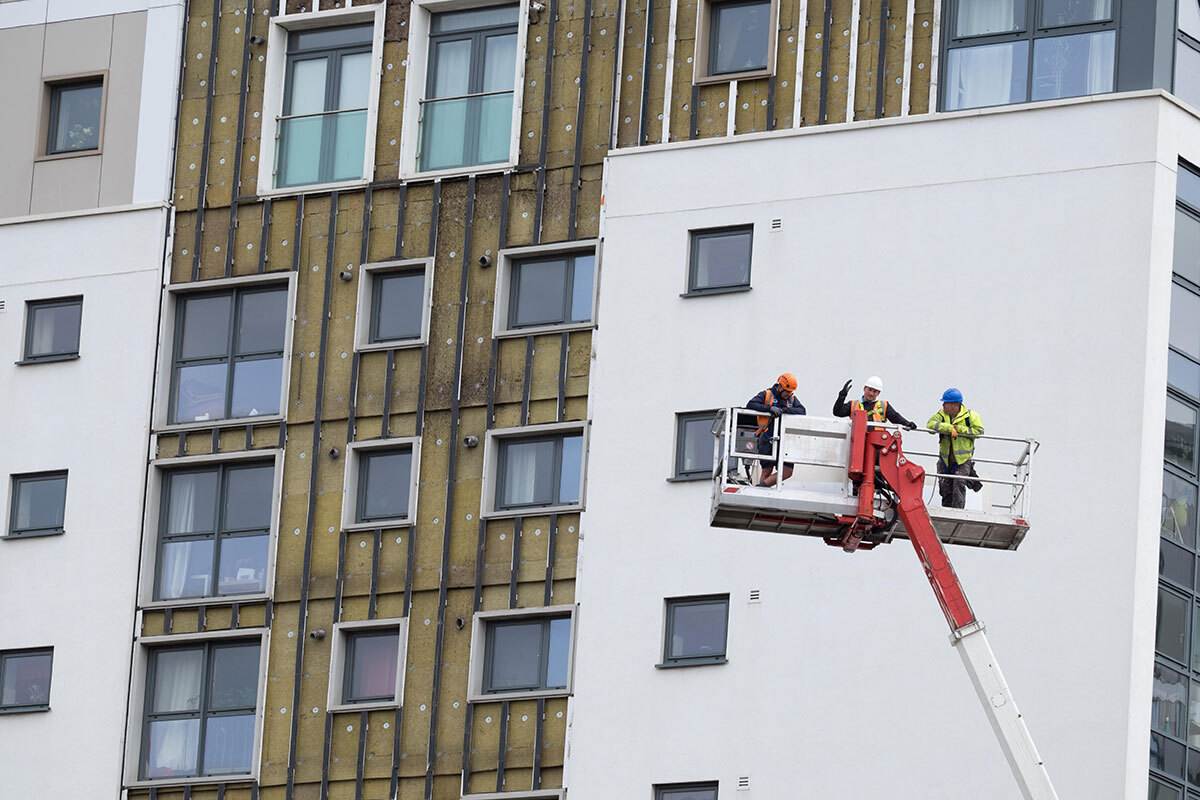
Scotland has made some bold steps to address the cladding crisis, such as a muscular ban on combustible materials introduced last June.
In other areas, however, Holyrood is playing catch-up with England. The new Housing (Cladding Remediation) Bill falls into that category.
Last year, the Scottish government said that relevant developers had pledged to assess and, if necessary, remediate 105 buildings. However, they have not yet signed a legal agreement similar to the one housing secretary Michael Gove has enforced in England.
Given that the final firm signed up to the English contract last month, seven months after Mr Gove’s deadline, Scottish ministers may have a long and arduous journey ahead of them.
For this reason, it is crucial that the cladding remediation bill has teeth.
With this in mind, Inside Housing has looked through the new bill and picked out key points from the legislation.
Ministers can carry out assessments without consent from owners
The bill gives Scottish ministers the power to assess and remediate buildings with unsafe cladding where the owners do not provide consent.
This power will be used to arrange the assessments on ‘orphan” buildings, where no developer can be found to pay for remediation. But it may also be used in other cases, for example where a developer is unable to gain the necessary consent to all the work involved in an assessment.
Even when arranged by Scottish ministers, the assessment will normally be carried out by another person under contract.
Under the plans, judges may grant a warrant to assessors to use “reasonable force” to enter a building if the premises are unoccupied, or the owner has refused to let them in.
It would become an offence to obstruct or fail to assist with assessments, likely punishable by a fine.
The bill also gives ministers the power to evacuate buildings if cladding poses a “substantial risk to the occupants’ lives”.
The cladding register
Scottish ministers will need to record cladding assessments and remediation works in a register. This register will include assessment dates, details of any repairs and when the work finished.
The government hopes this will make information about cladding repairs easily available. However, the bill allows Scottish ministers to charge for access to the register.
It is expected that the register will be used by solicitors during the sale and purchase of properties within affected buildings, or mortgage lenders to check that a property provides suitable security for lending.
It will be an offence to provide false or misleading information for the register, punishable by a fine of up to £1,000.
The responsible developers scheme
The bill also allows Scottish ministers to create a responsible developers scheme by secondary legislation. Similar to the Responsible Actors Scheme in England, it would set conditions for developers to be members that would encourage remediation works to be undertaken.
Eligible developers that do not join the scheme would face consequences. The intention is to encourage developers to contribute to remediation for buildings they are associated with.
Such a scheme would be subject to further consultation, Holyrood said, but would likely include an agreement to pay for remediation costs, with sanctions for developers that are eligible but do not join or continue their membership.
Developers that do not join would be added to a “prohibited developers list”. They could be prohibited from carrying out any development at all, prevented from being granted an individual building warrant, and rejected for any completion certificate it submits to a verifier.
No building safety levy yet
The new bill does not mention a building safety levy, an English policy that taxes developers to raise money for the replacement of dangerous cladding.
This is despite the fact that in September, first minister Humza Yousaf said he would “seek the power” to introduce such a levy in Scotland.
It looks like the Scottish government will continue seeking, and not legislating, on this for now.
The bill only applies to certain buildings
Finally, and arguably the most important news for landlords, for a building to be assessed under the bill, it must have been built or refurbished between 1 June 1992 and 1 June 2022. This building must contain at least one residential unit and be 11 metres or taller.
Sign up for our Scotland newsletter
Already have an account? Click here to manage your newsletters

